#International - UEFA Nations League
Explore tagged Tumblr posts
Photo

Total international football trophies by European nation (FIFA World Cup, UEFA Euro Cup, FIFA Confederation Cup and UEFA Nations League)
76 notes
·
View notes
Text
the start of something new ❉ j. groenen

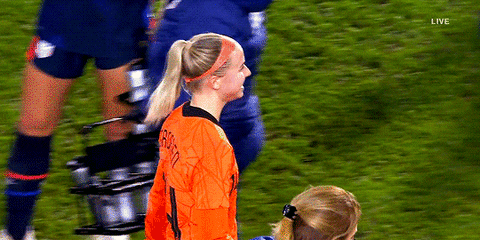
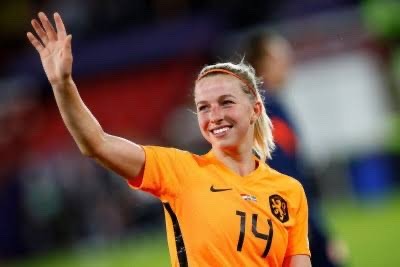
pairing: jackie groenen x reader
summary: a freshly graduated college student who majored in photography gets a job, that many football fans would want.
⎯⎯⎯⎯⎯⎯⎯⎯⎯⎯ ⋆✦⋆ ⎯⎯⎯⎯⎯⎯⎯⎯⎯⎯
you sat in one of the conference’s seats, it was a meeting about the publishing days for the team’s social media page, mainly instagram. you’re the team’s newest photographer, not just that but you freshly graduated from ucla with a minor in economics, a major in photography.
your camera gear was set on the table, different camera lenses were sorted in the bag, the camera itself, an extra storage card, two black camera straps and the other essentials.
you had anxiously tapped on your thigh, as you payed attention to the conversation. it didn’t take long for the meeting to end, and when it did—you gently carried your stuff.
it was international camp, as the uefa nation’s league was coming to a close. you grabbed the tripod already setting it up, as the schedule was coming to a close.
and as expected, the players had arrived. some were in a group of trios, duos or individual. you were behind the camera, as a few players took note of the newest staff.
you had a shy interior as you hid behind the camera while your co-staff had done the talking. occasionally, asking things how is it like at their club, or their weekend has been.
it was literally break when you were at the pitch, a co-worker was helping you set up the cameras as you were humming to yourself, not noticing a player looking at you with adoration.
she noticed your shy interior, how you would avoid conversations or eye contact with people. it was cute to her, she wanted to get to know you better. but she didn’t know how to.
little did she know, that she had caught your eye as well. your little brother is quite a fan of the team, and you would always get mixed up by the players.
but jackie really stood out to you, maybe it was her smile. the out-going vibe that she gave. you grabbed your camera, ready to take pictures after the players started piling out of the building.
quickly snapping a few pictures, you made sure the angle and lightning was okay. the pictures turned out perfectly, you looked through the camera, noticing a certain dutchie looking at you with a soft smile.
you had taken a picture, as you found the smile a bit charming. the whole training, you focused on the playing style, you had played high school football but never continued at college.
“come on, jackie.” daniëlle teased, trying to nudge the midfielder a bit closer to your direction. you were busy humming to yourself.
the day had came to an end and you were busy sorting through the camera gear, putting the things away not noticing the two players behind you.
“she’s busy-“ jackie didn’t finish her sentence as she was pushed by the other midfielder. she was just behind you, admiring the way you were focused.
she cleared her throat, but you didn’t hear it. jackie looked at danielle who shrugged.
“tap her shoulder!” danielle cheered, as jackie scoffed at how happy she was. she took a deep breath before gently tapping your shoulder.
you glanced back at her before placing the camera down, her eyes were looking into yours as you reached into your bag, getting a case.
as you opened it, a pair of hearing airs were revealed. yes—you needed hearing aids. did you use them? you do, but earlier your ears were hurting, hence you had removed them for a while.
you quickly put them on, giving her a timid smile—as her eyes widened in realization.
“yes?” you asked, as she cleared her throat for second time.
“hi, i’m jackie.” she introduced herself, her hand was held out as she had a toothy grin. you chuckled at her behavior, before returning the handshake.
“i’m y/n l/n. i’m sorry if you called me earlier, i had my hearing aids off.” you explained, as she hummed. it was a cute thing, despite this being the first time interacting with you, she loved how you rambled. or how you’d over-explain things.
“it’s fine, i didn’t really know. so, how’s your first day?” she asked, as she stepped beside you. analyzing the gear.
“it’s fine, my brother is a huge football fan.” you commented, as she asked for permission to grab on of your cameras. you gave her a soft nod, as she grabbed your nikon d780.
she turned the camera on before looking through the viewfinder of the camera.
“is he, then? who’s his favorite player?” jackie asked, as she snapped a few photos of the pitch, she turned the camera to danielle and a few of her teammates who dramatically posed.
“he really loves viv.” you chuckled remembering on how he’d ramble about the star striker, feeling a bit disbelief on how she would’ve retired at age 18.
“i’d see why.” she hummed, pointing the camera at you, quickly snapping a few pictures catching you off guard.
“hey!” you said, covering your face with your hand as she chuckled at how cute you looked like. you were shy, but you always preferred to be behind the camera and not in front of it.
little did you know, you had gotten out of your comfort zone in the future. jackie is and will always be your favorite photographer, she’d snap photos of you.
#jackie groenen#jackie groenen imagine#jackie gornen x reader#nedwnt x reader#nedwnt#woso imagine#woso x reader#woso one shot
256 notes
·
View notes
Text
Based on some of the comments on The Kintsugi Kid, and, I think, the surprise at the amount of denial and self-denial in it, here's a very brief and incomplete history of homosexuality in association football (soccer, we can call it soccer). I know the story is fiction but anyway, this is my rant into the void, basically.
Justin Fashanu was the first professional footballer to come out publicly and be openly gay in 1990. After coming out, he transferred clubs yearly, sometimes multiple times a year, until his suicide in 1998 amidst media allegations surrounding his sexuality. His brother continued to give interviews stating that Justin wasn't gay, but merely an attention seeker.
Unsurprisingly, the tragedy and hostility that struck his life after publicly coming out persuaded other gay footballers that coming out would not be a good idea.
Some minor league players come in the early 2000s, mostly after their retirement, some during their active career - for example Messi (not the Messi) who's the first Brazilian football player to come out in 2010. After coming out, he transferred clubs yearly, sometimes multiple times a year. What a coincidence!
Also in the early 2000s, Luis Felipe Scolari (ex-Chelsea manager) goes on record to say he would have thrown out of the team a player whom he found to be gay.
In 2005, former manager Alan Smith speaks of "the last taboo in football": "I've had players over the years who were single and read books and so others [other players] said they must be gay... I think being openly gay would be something very difficult to live with in football... You can get drunk and beat up your wife and that's quite acceptable, but if someone were to say 'I'm gay', it's considered awful. It's ridiculous."
Also in 2005, the Football Association held a summit aimed at tackling homophobia in football. In that same year, when the BBC asked all of the twenty Premiership managers their opinions on the issue as part of an investigation, all twenty refused.
Many heterosexual players are victims of homophobic abuse - both on and off the pitch, sometimes due to their "unladdish hobbies". Rio Ferdinand gets away with calling someone faggot live on air.
In 2010, Max Clifford says he would and has advised gay players to stay closeted: "It's a very sad state of affairs. But it's a fact that homophobia in football is as strong now as it was 10 years ago. If you'd asked me in 2000 whether I thought we'd have a famous, openly gay footballer by 2010 I would have said yes.
Robbie Rogers, an American football player, played for second-tier English football club Leeds united when he came out in 2013 - and announced his retirement almost in the same breath. He later returned from retirement to play for LA Galaxy, and become the first gay football player in the MLS. In 2013. He did play internationally for the United States, though was not called back for international games after his coming out. What a coincidence!
The first international player to come out as gay is Thomas Hitzlsperger who was a German national team player. He came out in 2014, one year after his retirement. During his active career, he had a long-term girlfriend.
So we're in 2014, and there's no openly gay football player in any major teams or with an international career. Most players who have come out since 2014 either came out after their retirement, or play for very very very minor leagues.
In June 2021, at the delayed UEFA Euro 2020 tournament, Germany national football team captain Manuel Neuer was investigated by UEFA for wearing a rainbow captain's armband and risked potential fines - they investigated it being a political statement.
The next major league player and first international player to come out whilst actively playing is Jakub Jankto, he came out in 2023 (yes, last year) and currently plays for a Series A team in Italy. He used to play for the Czech Republic but has not been called back for international games after coming out. What a coincidence!
In June 2022, it was revealed that homophobia made up the majority of online abuse aimed at footballers.
Here are some more supporting articles:
Homosexuality in association football
Homosexuality in English football
20 notes
·
View notes
Text
I've did some research on Hansi Flick (as he is probably becoming our next coach), the way he plays and if this is compatible with what we are used to. So you don't have to! I'm happy to answer any questions about this:)
Flick typically sets his teams up in a balanced formation, often preferring variations of a 4-2-3-1 or 4-3-3 system, depending on the players at his disposal and the opposition.
Pressing: Flick's teams are known for their aggressive pressing to win the ball back quickly. This pressing is usually initiated high up the pitch, aiming to disrupt the opponent's build-up play and regain possession in dangerous areas.
Quick Transitions: Once possession is won, Flick's teams look to transition quickly from defense to attack. Players are encouraged to move the ball forward rapidly, exploiting any spaces left by the opposition's transition defense.
Fluid Attack: Flick emphasizes fluid attacking movements, with players interchanging positions to create overloads and confuse the opposition defense. Wide players often cut inside, while full-backs provide width, allowing for combinations and overlaps in the final third.
Possession-based: While Flick values quick transitions, he also emphasizes maintaining possession when necessary, especially against stronger opponents or in controlling the tempo of the game. His teams are capable of patiently circulating the ball to create openings.
Defensive Organization: Despite the emphasis on attacking play, Flick's teams are also well-structured defensively. Players are disciplined in their positioning and are quick to transition into a defensive shape when possession is lost.
Barca has historically been associated with possession-based football, focusing on intricate passing, positional play, and dominating possession. Flick's emphasis on quick transitions and pressing could potentially align well with barca's desire to regain possession quickly and launch swift counterattacks.
Flick's fluid attacking style, with its emphasis on movement and interchangeability, could play to the strengths of Barcelona's creative players like Pedri and Frenkie.
Flick's emphasis on defensive solidity and structured defending could benefit from having a talented defenders like Araujo, Cubarsi and Christensen in the team.
Hansi Flick himself is a highly respected German football coach known for his tactical acumen, leadership skills, and successful coaching career at both club and international levels. Flick had a modest playing career primarily as a midfielder, playing for clubs such as Bayern Munich and FC Cologne. And his coaching career began in the early 2000s, and he gained prominence as an assistant coach under Joachim Löw with the German national team. He played a crucial role in Germany's success, including their victory in the 2014 FIFA World Cup. His most notable coaching achievement came during his tenure as the head coach of Bayern Munich. He took over as interim coach in November 2019 and led the team to unprecedented success. Under his guidance, Bayern won the Bundesliga, DFB-Pokal, and UEFA Champions League in the 2019-2020 season, completing a historic treble.
35 notes
·
View notes
Text
once again sharing the streaming for todays international matches (the ones I can find anyway)
England vs Scotland
Spain vs Sweden
Republic of Ireland vs Northern Ireland
Portugal vs France
Italy vs Switzerland
USA vs China
Austria vs Norway
Wales vs Germany
Netherlands vs Belgium
79 notes
·
View notes
Text
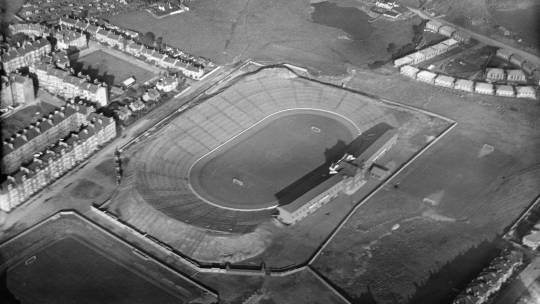
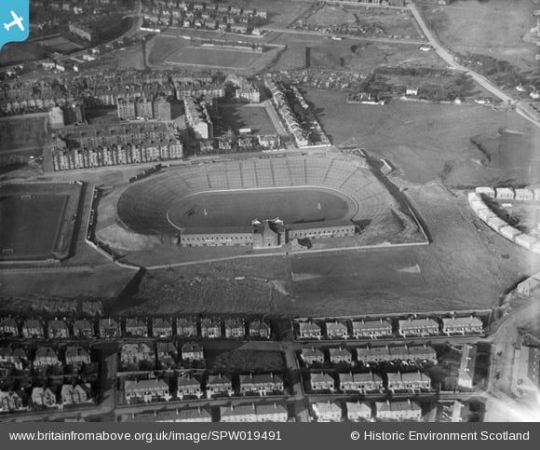
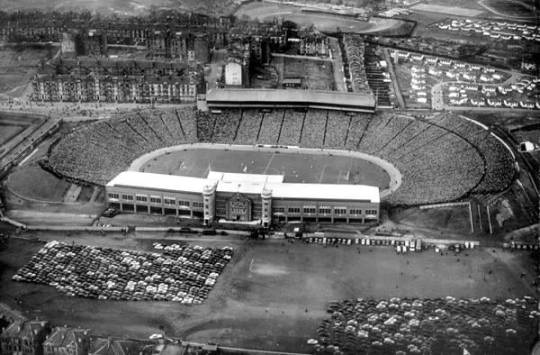
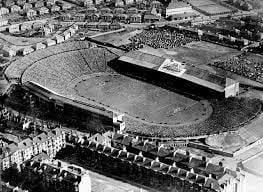
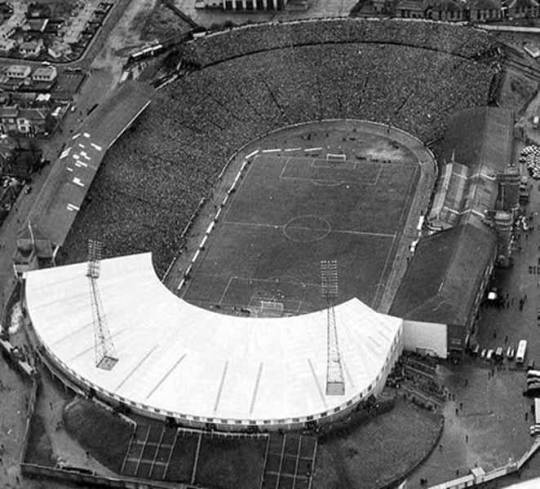
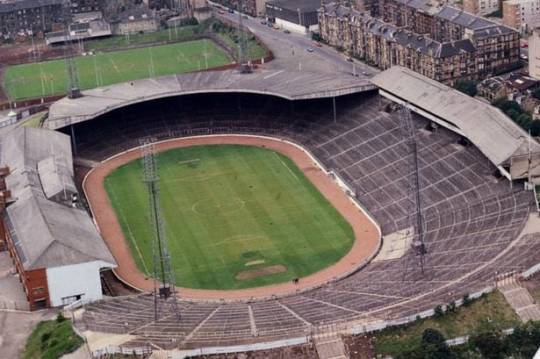
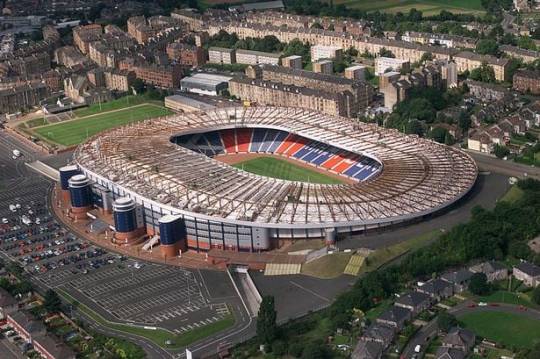
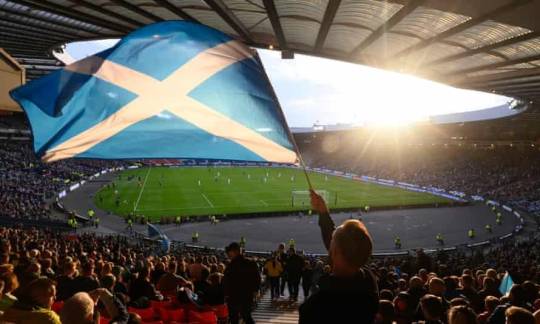
On October 31st 1903 Hampden Park stadium opened in Glasgow as the home of Queen’s Park Football Club.
Sources differ some say October 25th but SFA state 31st
Hampden was the biggest stadium in the world, it would hold this record until 1950 when The Maracanã Stadium in Rio, it held and incredible 199,854 for the final.
Back to Hampden, it opened for a league game on this day in 1903, three years late it held it’s first international when Scotland played England in front of a crowd of 102,741 people, which established Hampden as the primary home of the Scotland team.
Attendances continued to increase during the remainder of the 1900s, as 121,452 saw the 1908 Scotland v England match. A new world record of 127,307 were in attendance to see Scotland play England in 1912.
World record crowds attended Scotland matches against England in 1931 and 1933 and it was 33 that saw the first team from mainland Europe, Austria visit the stadium. Further ground improvements increased the official capacity of the ground to 183,388 in 1937, but the SFA were only allowed to issue 150,000 tickets for games. The 1937 Scotland v England match had an official attendance of 149,415, but at least 20,000 more people entered the ground without tickets.
During WW2 a government official presented an order demanding that both the Hampden and Lesser Hampden pitches be ploughed and used to plant vegetables, but the Queen’s Park committee chose to ignore the order and the government did not pursue it.
Hampden hosted the 1960 European Cup Final; Real Madrid defeated 7–3 Eintracht Frankfurt with 130,000 people in attendance. By the time the next European cup final was held in 1976 between Bayern Munich of West Germany and Saint-Étienne of France the attendance had fallen to 54,670. The French complained about the goalposts stating that two of their efforts which hit the square crossbar and rebounded into play would have resulted in goals if it had been round!
Hampden was aging and the capacity was cut 81,000, redevelopment started in October 1981 and completed in 1986, reduced the capacity to 74,370 and cost £3 million. After the cancellation of the annual Scotland v England fixture in 1989, questions were raised as to whether Scottish football required a separate national stadium, other venues were mooted but the SFA and the stadium committee rejected these and after securing a grant of £3.5 million in 1992, work to begin on a £12 million project to convert Hampden into an all-seater stadium, Hampden was re-opened for a friendly match between Scotland and Netherlands on 23 March. The final stage of the renovation began in November 1997, costing £59 million, inevitably the price soared but Hampden was re-opened for the 1999 Scottish Cup Final. The ground now has a capacity of 51,866.
The stadium was again fit to host the top matches and Real Madrid were again victorious when Hampden Park hosted the 2002 UEFA Champions League Final, defeating Bayer Leverkusen, with Zinedine Zidane scoring the winning goal with a left-foot volley.
In 2012, a Scotland women’s national football team game was played at Hampden for the first time, when it hosted the first leg of a European Championship qualifying playoff against Spain and Hampden was temporarily converted into an athletics stadium for the 2014 Commonwealth Games.
To celebrate the 60th anniversary of the European Championship in 2020 the National stadium has been chosen by Uefa as on of 13 venues for the competition and I am sure the people of Scotland will welcome whoever is chosen to play in Glasgow.
With the advent of big stadium concerts Hampden has been used to host a wealth of worldwide acts Genesis and Paul Young performed in the first concert at Hampden, in 1987. The Rolling Stones played there in 1990, during their Urban Jungle Tour. Since the redevelopment of Hampden was completed in 1999, many acts have performed there, including The Rolling Stones, Rod Stewart, Tina Turner, Bon Jovi, Eagles, U2,Oasis, George Michael, the Red Hot Chili Peppers, Neil Diamond, Take That, AC/DC, Bruce Springsteen, Coldplay, Pink, Paul McCartney, Rihanna, and Beyoncé.
The national stadium takes a lot of stick, but the cost of building a new one is way out of reach for the SFA, but if they somehow came up with funding I think it would be more suited to be somewhere around the Stirling area, I would also like to see a train station as near as damn it next to it, we can but dream though..........
14 notes
·
View notes
Text
3.10 International Meta
Ted Lasso’s International Break details - actually extremely accurate! I am pleasantly surprised! If you read my review of episode 9, you’d have seen at the end the part where we freaked out about the potential for bad exposition regarding this stuff. But they actually fucking nailed it! And they left so much space for amazing fic and headcanons!
I’m going to overhaul the International Break page on the primer to include all the new information and erase stuff that is now erroneous and I will post again when done, but in the meantime, here are some notes about details in this episode that hopefully will be exciting to think about, in terms of gap-filling fic or otherwise. Trust me, applying some of the below information to the show really heightens an already VERY AMAZING episode. Uncle’s Day! Gareth Southgate! 24!
Ted Lasso season 3 is set in the 2021/2022 football season. We have a thorough timeline of season 3 coming for the primer, but in 3.10, Richmond has played 31 league matches so far (16 wins, 6 losses, 9 draws according to the board) and the time being featured in this episode is the annual March international break.
In real life, this break happened from 21-29 March 2022. There also would have been international breaks in August, October and November 2021. These were not featured on the show but would have occurred in between episodes, regardless of whether any players were called up during them or not. The August break would have happened during the Zava montage of wins in episode 3, the October break would have happened directly after episode 3 and before episode 4, and the November break would have happened in the bad run of matches that happened off screen between episode 4 and episode 5.
The March break is usually dedicated to continental friendlies rather than tournament qualifiers. Each international team would have played TWO games that week within their confederation, so Canada played Mexico once and some other CONCACAF nation once. England and Wales would have each played two UEFA opponents, and so on.
The international matches are generally spaced out over something like Thursday and Saturday, or Friday and Sunday - a few days training, play one game, more days training, play the next game, recovery, press, back to the regular league club by the following Tuesday.
The moment Beard reads out the names in the dressing room after the Leicester match would not be the first moment the players are finding out this news. That international announcement does not happen on a match day, and they guys are responding happily but not as excitedly as they would if this was The Big News Announcement, especially for Jamie’s very first time. That moment was a summary of already known information, the call-ups would have come in the week before.
They’ve just played Leicester on the Saturday and Jamie for instance would have got the news sometime between Monday to Thursday of the prior week. This year, the England squad announcement for the March break was released to the public on Thursday 16th March before the players showed up at St George’s Park to train on the following Monday the 20th. I’m sad we did not actually get to see Jamie’s call-up moment, but the primer has a BUNCH of examples about how he may have gotten the news so feel free to peruse and imagine your favourite situation for Jamie.
Dani is the only person we know for sure has had prior call ups - he’s listed as a Mexico international on the cheat sheet since before he even came to Richmond - but on this break, Jamie is the only person they mention making his debut, his very first call-up (invitation to be in the squad) and potential cap (cap being the term for actually making an appearance - he could have been called up but not capped, as in, didn’t come off the bench.) That Jamie detail kind of implies all the others have done it before, but that doesn’t quite fit with Ted not knowing that Bumbercatch is playing for Switzerland, as they would have gone through like, nine prior international breaks before this one since Ted’s arrival.
Pretty sure Bumbercatch IS English, but he must be eligible for Switzerland under the grandparent rule. Basically, when you select your international eligibility, you can claim it for the country of birth of one of your parents or grandparents. Players will sometimes do this if their main nationality is from a more competitive footballing country. You can switch allegiance between junior and senior levels (Jack Grealish and Declan Rice, both VERY ENGLISH MEN, played for Ireland as juniors because they had a better chance of being selected there. When it became clear they were England-good, they switched allegiances for senior selection. Irish fans are still angry about this.) I’m assuming Bumbercatch has at least one Swiss parent or grandparent so put himself up for FIFA eligibility as Swiss rather than English, as the Switzerland team is easier to get into than the England team.
England trains at St George’s Park near Birmingham, about 130 miles/ 2 and a half hours drive from Richmond. Jamie would have trained at SGP before as a junior England player in the age group teams (see the primer about how this is almost 100% a given) so it would not be a brand new place for him to visit, but it would be very special coming in as an England senior player for the first time on the Monday morning.
The team travels down from SGP to London to play their home matches at Wembley Stadium, the home of English football and the same place the semi-final against Man City took place last season. This is only about 10 miles from Richmond, hence Beard saying “up the way at Wembley.” Sometimes both matches of the break are at home, or sometimes one is abroad and they fly to the other country. FWIW, in real life, the two England games in the March 2022 break were both at Wembley, so no overseas travel.
The jacket Jamie is wearing for Uncle’s Day is an example of the casual England wear the players get given upon their call up (as opposed to their training kit or match kit.) This is what they will wear to travel as a group, or in their free time around camp. Sometimes they get gear sent over the week before so they can already be dressed in the team gear when they arrive (there are social media videos made of their arrivals) or sometimes they pick it all their gear on arrival.
Jamie would have reported for International Duty probably on Monday. Occasionally the report-in is Tuesday. But Uncle’s Day is happening on WEDNESDAY. (Keeley references the day of the week in her scenes set that same day.) The reason I bring this timeline up is because it’s looking likely that Jamie ran away from the England camp to attend this party. He either drove himself down from Birmingham after training on Wednesday afternoon - very not allowed, they are kept pretty firmly on campus - or the team traveled down to London VERY early, because Jamie’s first Wembley match takes place on Friday, not Thursday. The fact that he has sourced an original copy of the 2014 World Cup kit for Roy and was able to get the name cuntified in a legitimate manner suggests to me that he actually got that done at by the kit men at the England base camp, making it even more likely that he’s been at camp and snuck away back to London for the afternoon.
2014 was Roy’s last World Cup, but his last England cap, ever, was in the 2016 Euros (in a real life game that England lost, a very low point - we suspect this is also when he left Chelsea, at the end of the 15/16 season) and given his legendary status in the game, it’s not unlikely his first international tournament was either the 2000 Euros or the 2002 World Cup. Comparing how the show frames him to other players like him, I would guess he has anywhere between 70 to 120 caps.
3.10 establishes, via Jamie’s gift to Roy, that the World Cup cycle within Ted Lasso is the same years as real life, so there is a World Cup coming up for the players right after season 3 finishes. If Ted Lasso-verse does a different host to real life (the controversial choice of Qatar) the 2022 Ted Lasso World Cup will be in the June and July immediately following the finale. If Qatar is mentioned, the 2022 World Cup won’t take place until November 2022, disrupting the Premier League during the following season (season 4, if we get it.)
The commentary of the England match mentions Southgate - meaning that Gareth Southgate, the real England manager, is also the manager within the show. This is GREAT news for Jamie enjoyers, almost as good news as Real Pep. See primer for details on Southgate and how he would have crossed paths with Jamie before. This is a VERY BIG DEAL and a bit of a dream come true for me. Gareth is about a decade older than Roy, they would know each other from some crossover playing time in the early 2000s. He would have played at England alongside Roy if Roy debuted for England before 2004.
I just had a conversation that made me realise that some people might think that league or club coaches might also join the England team for breaks the way that players do. Not how it works. Managing England is a full time job - Gareth Southgate is not ALSO a club coach. Sometimes the assistant coaches have other jobs - for a while Ted Lasso match commentator Chris Powell was helping to coach England while also helping to coach the Tottenham Hotspur academy team. But Gareth's ONLY job is the England men's first team, including keeping up with the status of potential squad members all year and so on.
It's not impossible that Roy could eventually be brought on to the England assistant coaching staff while also assistant coaching Richmond - in real life one of West Ham’s assistant coaches does this - but Roy doesn't have a lot of experience coaching so it's unlikely, and it's not going to happen if Roy becomes the actual manager of Richmond at the end of the season. Still. It could be a fun idea if Roy doesn’t become the manager.
Jamie wearing 24 is very plausible within how national squad numbering works and it is actually the number we suggested for him in the primer before this episode aired! Our choice was nothing to do with Sam, but was chosen because it was the number given to Callum Wilson, England’s non-starting striker, in the World Cup. Jamie will not be England’s go-to 9 for many years.
Jamie could have requested 24, but the international shirt numbering is not a free for all. You can’t select 54 or 81 or something. The squad is numbered from 1 to however many (usually 26) with no gaps, and it’s not fixed and permanent like club numbers. Who gets what number is altered every match based on the starting line up, unless you’re in a big tournament where you keep the same shirt number the whole month. For an international friendly like this, the starters for that game will wear 1 through 11, then all the substitutes will be numbered on from there.
Given that Jamie is brand new to the team, and on the bench (he comes on at the 65th minute when it’s 6-0 to England, replacing the not-Harry-Kane England starting striker who wears the 9, a very normal situation for a game that’s going successfully, rest your stars and give the newbies a chance to stretch their legs) being numerically low in list makes sense. He would have always had a number between say 22 and 26, but within that, he could probably make a request, if it isn’t putting anyone else out, like “Hey, if no one minds, can I have 24?” as opposed to 22, 23, 25 or whatever. They do give people their favorites if they ask for it, so it works PERFECTLY for him to have 24, as it fits his position in the team as well as the Sam tribute.
However, his squad number would have been listed on the team sheet in advance of the match. Sam being surprised in the moment is slightly off - they would have seen his number when they learned he'd been selected for the game's lineup at all.
For those bummed out that Jamie’s friends were not there in person - England would have played another match on the Sunday, there is never just one in a break. Maybe Roy, Keeley, Ted, Isaac, Sam and so on went to Wembley to support him at the Sunday match in person before club training resumed at Richmond on the Monday or Tuesday.
131 notes
·
View notes
Text

Alessia has been called up to England's squad for the upcoming international break, where they will play two group stages in the UEFA Women's Nations League.
22/9: England - Scotland
26/9: Holland - England
55 notes
·
View notes
Text

Franz Beckenbauer, who has died aged 78, was widely regarded as the best footballer Germany has ever produced. A pre-eminent figure in the world game after the second world war, he was a phenomenally innovative player who captained West Germany to a World Cup win in 1974 and later managed his country to two consecutive World Cup finals, winning the second of them in 1990 in Rome.
As a club manager he added a Bundesliga title and a Uefa Cup win to his World Cup victory at international level and as a player he won a World Cup, a European Championship, three European Cups and five Bundesliga titles in Germany. However, more than his capacity for winning, it was the elegant, intelligent nature of his play that attracted such admiration all over the world.
While he was still a teenager at Bayern Munich, Beckenbauer had become the virtual inventor of what came to be called “total football”. Watching the Milan team Internazionale on television, he was impressed by the attacking forays of their big left-back, Giacinto Facchetti. He asked himself why a defender might not attack from a central role as well as from the flanks, and thus became Bayern’s attacking libero. It was a role that became the cornerstone of the total football practised by Bayern and their great Dutch rivals, Ajax, in the early 1970s.
Captained by Beckenbauer – a tall, erect figure always ready to sweep out of defence – Bayern at first played second fiddle to Ajax, but eventually emulated them by winning the European Cup three times in a row, between 1974 and 1976. Before that sequence Beckenbauer had already captained an outstanding West Germany team to the European Championship title in 1972, beating the Soviet Union 3-0 in the final. Two years later he led his country to victory in the 1974 World Cup on German soil, defeating the Netherlands 2-1. He played 103 times for West Germany and appeared in 427 league matches for Bayern.
Franz was born to Antonie (nee Huphauf) and Franz Sr, a postal worker in the Munich suburb of Giesing, near the stadium where he would make his name. By the age of eight he was already regarded as a technically accomplished player, even in a city where footballers and football proliferated. Munich 1860 was the club he favoured; Bayern Munich, where he would later excel, were small beer at the time; an upstart by comparison.
However, Munich 1860’s loss would be Bayern’s gain. In 1958 he was playing for the junior team of a little local club, SC 1906, which actually closed that year, and expected to join 1860. “But in the last game we played for SC 1906 against 1860,” he related, “a half-back gave me a slap. That was enough for me. 1860 would never get me. And so Bayern took me into its ranks.” Beckenbauer was, with rare exceptions, always a sporting player, who declared that he would rather be fouled and leave the field than commit a foul himself.
He made his debut for Bayern Munich in 1964 – when they were in the German second division – and in his first season helped them gain promotion to the Bundesliga.
Thereafter Bayern rapidly became a major force both at home and in Europe, winning the German Cup in 1966–67 and the European Cup Winners’ Cup in 1967 (against Rangers). Beckenbauer was made team captain for the 1968–69 season and led the club to its first league title that year, subsequently winning three league championships in a row from 1972 to 1974 and that hat-trick of European Cup wins in 1974-76.
Under his leadership (he was nicknamed the Kaiser for his commanding, almost imperious presence) the Bayern team of that era, which also featured greats such as the goalkeeper Sepp Maier and the centre-forward Gerd Müller, established itself as one of the most accomplished club sides of all time.
Beckenbauer’s first game for the national team, at the age of 21 in 1965, had come even before Bayern’s dramatic rise to prominence. He was the star member of the West Germany side in the 1966 World Cup finals, where they were runners-up in the Wembley final to England, and again in the 1970 finals in Mexico, where they finished in third place.
Helmut Schön, the tall, gentle West Germany team manager who was almost a father figure to Beckenbauer, for many years refused to let him play the libero role for his country. When he finally relented in 1974, West Germany won the competition and Beckenbauer lifted the trophy as captain.
All seemed set fair for a fourth World Cup campaign for Beckenbauer in Argentina in 1978, but to general surprise, and aged only 31, he retired from international football in 1977 to switch to play for New York Cosmos in the North American Soccer League.
It was an unusual move after almost 15 years at the highest level of the game with Bayern, but the contract was lucrative and enormous crowds came to see him play with Pelé and other stars at the Giants Stadium, New Jersey.
In his four seasons with the Cosmos the team won the national Soccer Bowl on three occasions (1977, 1978 and 1980). “I’ve done everything in my life – championships for Bayern Munich and the World Cup for Germany – but the New York Cosmos was the best time of my life,” he said. “At Munich it was all German players; at the Cosmos it was 14 nationalities and Pelé.”
He returned to Germany to play for Hamburg (1980-82), where he picked up another Bundesliga winners’ medal at the end of the 1981-82 season before going back to the US for one final campaign with the Cosmos in 1983 and then retiring. In his career in domestic leagues he had made 587 appearances and scored 81 goals.
When Beckenbauer retired he seemed to have no ambition to go into management, so it was a surprise that in 1984 he agreed to manage West Germany in succession to Jupp Derwall. Never before had a West Germany manager been appointed who had not come through the exhaustive qualifying programme of the German football association, one which involved not only the passing of examinations but the running of minor clubs.
In appointing Beckenbauer, the German authorities were abandoning firm principle in the hope that his immense prestige and authority would prevail; and they were not disappointed.
The team he inherited was in the doldrums, yet at the 1986 Mexico World Cup, suitably inspired, they reached a final in which they were plainly inferior to an Argentina team that went into a 2-0 lead, only for the Germans to fight back, catch them up, and then lose 3-2. Four years later, in a grisly final in Rome, Germany had their revenge, beating Argentina 1-0 with a penalty by Andreas Brehme.
Shortly afterwards Beckenbauer resigned his position to became technical director of the French club Marseille on a two-year contract worth nearly £500,000, taking a German physical trainer with him. But for once his writ did not run. The French players were unhappy with the training regime and Beckenbauer withdrew after just four months.
He was far happier when he returned to Bayern Munich to serve as manager over two short spells – in 1993-94 and in 1996 – during which time he collected two further honours, the Bundesliga title in 1994 and the Uefa Cup in 1996. Thereafter he was president of the club for two years.
In 1998 he became vice-president of the German football association and at the end of the 90s headed the successful bid by Germany to host the 2006 World Cup, chairing the subsequent organising committee. He was named honorary president of Bayern Munich in 2009, a position he held until his death.
His son, Thomas, with Ingrid Grönke was born in 1963. In 1966 he married Brigitte Wittmann. They had two sons, Michael and Stephan. Following their divorce in 1990, he married Sybille Weimer; they divorced in 2004. With his third wife, Heidi Burmester, he had two children, Noel and Francesca. Stephan, who was also a footballer and played for Bayern Munich, died in 2015. Franz leaves Heidi and his four other children.
🔔 Franz Anton Beckenbauer, footballer, born 11 September 1945; died 7 January 2024
Daily inspiration. Discover more photos at Just for Books…?
23 notes
·
View notes
Note
hi! may i ask you something about this Super League? im confused because im new here. and what about that 1 billion euros for? thank you
Hi, of course 🫶🏻
The Super League is a rather complex topic, so I'm gonna give you a short summary and a longer version with the history and stuff under the cut.
In short, the Super League is a proposed football competition for football clubs in Europe that is aimed to rival the UEFA competitions, such as the Champions League, Europa League, and Conference League.
Format (this is the new version they just released):
It would include 64 men’s (spread across three leagues) and 32 women’s teams (spread across two leagues) playing midweek games in a league system across Europe. All clubs would play in groups of 8 – home and away – resulting in a guaranteed minimum of 14 matches per year. At the end of the season, a knockout stage of 8 clubs will be played in each league to determine the league champions. There would also be annual promotion and relegation between the three/ two leagues. The idea is that it would not interfere with domestic leagues.
History:
Proposals of Super Leagues in European football have been around for decades with the earliest ideas dating back to 1968. There were attempts to create a 'Super League' in 1987 and 1990 but they were abandoned after UEFA and FIFA threatened to sanction all involved clubs. In 2009, Florentino Pérez (president of Real Madrid) began planning a 'Super League' because the Champions League, in his words, was too "obsolete and problematic for the quality of the sport and an obstacle preventing clubs from growing their businesses and developing infrastructure." That idea resurfaced in 2020 when big clubs started suffering financially from the Covid-19 pandemic and ongoing debts. That got American investors interested who pledged US $5 billion towards its formation. In January 2021, FIFA and all six football's continental confederations (AFC, CAF, CONCACAF, CONMEBOL, OFC, and UEFA) issued a statement that rejected the formation of any breakaway European Super League and that they would ban any club or player involved from any competitions organised by FIFA and its six confederations.
Current 'European Super League':
In April 2021, Pérez announced the formation of the 'European Super League' (ESL) via a press release signed by twelve clubs that signed up to be involved (Arsenal, Chelsea, Liverpool, Manchester City, Manchester United, Tottenham Hotspurs, Inter Milan, Juventus, AC Milan, Atlético Madrid, FC Barcelona, and Real Madrid). The aim was a new competition that "provides higher-quality matches and additional financial resources for the overall football pyramid, provides significantly greater economic growth and support for European football via a long-term commitment to uncapped solidarity payments, which will grow in line with league revenues, would appeal to a new younger generation of football fans, and also would improve VAR and refereeing." Real Madrid, FC Barcelona, and Juventus were the three leading clubs. There is much more to the financial aspect of it (like solidarity payments, welcome bonuses, participation payments, commercial revenue, etc.), but that's rather complicated and depends on what newspaper you wanna believe.
Reception:
The announcement led to a joint statement from the governing bodies of the Premier League, La Liga and Serie A condemning the formation, with all governing bodies declaring to prevent the ESL from proceeding any further. Football governing bodies from Germany, France and Russia released similar statements. UEFA reiterated their statements made in January 2021, warning that any clubs involved in the Super League would be banned from all other domestic, European and world football competitions and that players from the clubs involved would also be banned from representing their national teams in international matches. (The Premier League and their governing body FA ruled out barring the six clubs from domestic competitions and preferred to not take legal action.) Numerous politicians expressed their opposition to the proposal of the ESL. Amongst commentators, footballers and managers, the ESL sparked contrasting opinions. Media companies were mostly opposed to the idea (which does not come as a surprise as ESL promises free viewing of all live matches). Many football fans, including the fans of the involved clubs, were not in support of the idea of the ESL. The backlash led to nine clubs (all clubs, except FC Barcelona, Real Madrid, and Juventus) announcing their intention to withdraw from the project in April 2023. However, eight of these nine clubs remained involved as stakeholders. In June 2023, Juventus announced their decision to leave the Super League project after facing a rumoured 5-year ban from all European competitions if they went through with the project. (That only leaves FC Barcelona and Real Madrid)
Legal issues:
In May 2021, the Super League filed a complaint to the Court of Justice of the European Union against UEFA and FIFA for their proposals to stop the competition. UEFA had opened disciplinary proceedings against FC Barcelona, Juventus, and Real Madrid, which were threatened to be excluded from all UEFA competitions, in order to sanction them but these measures were stayed until further notice as a result of the rulings from the Spanish commercial court and Swiss authorities. In June 2021, the Swiss Department of Justice and Police and the Spanish Commercial Court referred the issue to the Court of Justice of the European Union to question whether UEFA and FIFA have violated two articles of the Treaty of the Functioning of the European Union. Article 101 prohibits cartels and other agreements that could disrupt free competition in the EEA and Article 102 aims to prevent businesses in an industry from abusing their position or taking action to prevent new businesses from gaining a foothold in the industry. On 21 December 2023, the European Court of Justice (ECJ) ruled that FIFA and UEFA's rules, which banned clubs from joining rival competitions, such as the Super League, are contrary to EU law. UEFA's and FIFA's rules making new football projects subject to their prior approval are also unlawful.
What does the ECJ's ruling mean:
The ECJ's ruling is binding and not subject to appeal. The ECJ's decision on UEFA's rules does however not rule on whether the Super League should (or is allowed) to exist. UEFA needs to change and clarify its rules now to comply with EU law. Once the regulations are updated, the Super League will still need to acquire authorisation to set the competition up. The ruling basically gives companies like A22 the right to pitch a new football competition and for their application to be judged on criteria which are "transparent, objective, non-discriminatory and proportionate".
Revival of the project:
In December 2023, A22 announced a new, updated proposal (which I already explained under format). However, many clubs have issued statements opposing the idea (including clubs, who were once involved in the ESL). As of right now, Real Madrid, FC Barcelona and SSC Napoli have issued statements in support of the ESL. There are reports about various clubs from Italy, the Netherlands, Portugal and other European leagues who are keen on joining (but no official statements from the clubs).
Why could Barça and Real Madrid receive €1 billion?
I believe this has not been confirmed by A22, but it has been reported by various newspapers. They would receive €1 billion as a reward for their loyalty, as they are the only two clubs who remained firm on their decision to take part in the Super League. That would obviously only happen if they find enough teams to set up the ESL.
#i tried to make this as fact based as possible#everyone can form their own opinion on whether they like the esl or not#i hope this somewhat helps#asks#anon#*football talk
21 notes
·
View notes
Text

Antoine Griezmann is retiring from International football.
France: 2014 - 2024 | 44 goals in 137 appearances.
UEFA Euro 2016 runner up, FIFA World Cup 2018 winner, UEFA Nations League 2020-21 winner, FIFA World Cup 2022 runner up.
UEFA Euro 2016 Player of the Tournament, UEFA Euro 2016 Golden Boot, FIFA World Cup 2018 Final Man of the Match, FIFA World Cup 2022 Top Assist Provider.
One of the best to ever do it, merci Grizi !
4 notes
·
View notes
Text
Real Madrid Reacts To Cristiano Ronaldo Scoring 900 Career Goals

Cristiano Ronaldo made history by scoring his 900th career goal this week. The Portuguese legend achieved this incredible milestone during a UEFA Nations League match against Croatia.
Ronaldo has now scored 900 goals for both club and country (excluding friendlies). This is the highest number of goals ever scored by a footballer in the history of the game. The five-time Ballon d’Or winner hit this amazing record while playing for his national team against Croatia on Thursday.
Highlights from the Match
In the match, Diego Dalot scored the first goal for Portugal in the 7th minute. Then, in the 41st minute, Dalot accidentally scored an own goal for Croatia. In between, at the 34th minute, Cristiano Ronaldo scored his historic 900th goal. Nuno Mendes passed the ball to Bruno Fernandes, who found Ronaldo in the box. Ronaldo then tapped the ball in from a tough angle.
➥ Also Read: Cristiano Ronaldo Hints Retirement
Cristiano Ronaldo’s Emotional Reaction

After scoring his 900th goal, the 39-year-old Ronaldo got emotional. Following his usual celebration, he broke down in tears on the field. Reaching such a milestone is a rare and amazing achievement for any athlete.
Ronaldo is not only the top goal scorer in the history of football but also the highest goal scorer in international football. His goal against Croatia was his 131st goal for Portugal. He is one of only three players to have scored over 100 goals for their country. Lionel Messi is in second place with 109 goals for Argentina.
Real Madrid’s Reaction

Out of the 900 goals, Ronaldo has scored 450 while playing for Real Madrid. After winning his first Ballon d’Or with Manchester United, Ronaldo joined Real Madrid in 2009. During his time there, he played 439 games and scored more than one goal per match, making him the club’s top scorer, even though he wasn’t in the top 10 for appearances.
Since Ronaldo spent many successful years at Real Madrid, the club reacted to his 900-goal milestone. After his goal against Croatia, the defending La Liga champions tweeted:
“Another historic feat: 900 goals in the professional career of one of the biggest legends in the history of Real Madrid and world football. Congratulations, dear and admired @Cristiano. Real Madrid and the club’s fans are always proud of you.”
Still Going Strong at 39

Even at 39 years old, Ronaldo shows no signs of slowing down in terms of scoring goals. He now plays for Al-Nassr in the Saudi Pro League and has been the top scorer in the league since he joined in early 2023. In his first full season, Ronaldo scored 44 goals in 45 matches.
His move to Saudi Arabia has helped him increase his goal tally, and if he stays healthy and plays for a few more seasons, we might even see Ronaldo reach 1,000 goals.
➥ Also Read: Real Madrid on Ronaldo Reaching 900 Career Goals
#real madrid on ronaldo#real madrid#cristiano ronaldo#cr7#soccer#football#sports#900 Career Goals#900 Goals#Real Madrid Reacts To Cristiano Ronaldo
2 notes
·
View notes
Text
Paul MacInnes at The Guardian:
Uefa has been found to be “abusing a dominant position” in the way it applies its rules, leaving the potential for a revival of the European Super League project. In a long-awaited ruling by the European court of justice, Uefa and football’s international governing body, Fifa, were found to have rules relating to the establishment of new competitions that were not “transparent, objective, non-discriminatory and proportionate”. These rules have been declared “unlawful” by the court. The judgment also found, however, that its decision “does not mean that a competition such as the Super League project must necessarily be approved”. The ruling has been awaited by football’s stakeholders as potentially offering sign as to the future of the European game and whether a project such a Super League could happen again.
Bernd Reichart, the chief executive of A22, a consultancy hired by the Super League Company, said on X: “We have won the right to compete. The Uefa monopoly is over. Football is free. Clubs are now free from the threat of sanction and free to determine their own futures.” A22 swiftly revealed its plan for men’s and women’s Super Leagues, with 64 teams in the men’s competition, 32 in the women’s and promotion and relegation across the divisions in each. It said the initial selection of clubs would be based on merit, there would be no permanent members and clubs would continue to play in their domestic leagues, with Super League matches scheduled midweek. Ejection from either competition, however, would happen only for clubs that finish at the bottom of the last tier. Clubs would be placed in groups of eight, guaranteeing them 14 matches a season. Reichart said of the project’s plans, which would in effect replace Uefa’s Champions League. “For fans: We propose free viewing of all Super League matches. For clubs: Revenues and solidarity spending will be guaranteed.”
Javier Tebas, the president of La Liga and a staunch critic of the Super League, which continues to be backed by Real Madrid and Barcelona, accused Reichart of behaving as if he had been drinking “until 5 in the morning”. He said the ruling had not stated that Uefa and Fifa must admit the Super League. “On the contrary,” he said, “it points out that the criteria for admission to competitions must be transparent, objective and non-discriminatory. Principles precisely incompatible with the Super League.” Uefa said the ruling did not “signify an endorsement or validation of the so-called ‘super league’” but addressed a “pre-existing shortfall” in Uefa’s framework which it said it had subsequently corrected in June 2022. It outlined its continued opposition to the Super League project. “Uefa is confident in the robustness of its new rules, and specifically that they comply with all relevant European laws and regulations,” it said. “Uefa remains resolute in its commitment to uphold the European football pyramid … We trust that the solidarity-based European football pyramid that the fans and all stakeholders have declared as their irreplaceable model will be safeguarded against the threat of breakaways by European and national laws.”
In 2021, immediately after the announcement of the breakaway tournament, Uefa took disciplinary action against the 12 Super League clubs, with each sanctioned and banned from European qualification for joining a competition unauthorised by the governing body. The Super League company brought legal action in response, its arguments focusing on whether Uefa should have the power to decide what is authorised. Uefa’s disciplinary processes were suspended as part of these proceedings, with nine of the 12 clubs also walking away from the Super League. An opinion published last year by an advocate general at the ECJ found Uefa had not acted against European competition law by sanctioning its clubs. Real Madrid’s president, Florentino Pérez, said after the ruling: “Today will mark a before and after; it is a great day for the history of football and the history of sport.” Pérez said clubs could now be “the masters of their destiny” and the Super League would give football “the new impetus it so badly needs”.
The European Court of Justice rules that neither FIFA nor UEFA can legally block the formation of the Super League.
4 notes
·
View notes
Text
Deutschribing Germany
Sports
Germany ranks fourth in the Olympic Games medal count, having won 922 medals in both Summer and Winter Olympic Games since 1896. The country has hosted international sports events such as the 1936 and 1972 Summer Olympic Games in Berlin and Munich, the 1936 Winter Olympic Games in Garmisch-Partenkirchen, and the 1974 and 2006 FIFA World Cup. It will host the UEFA Euro 2024.


Soccer
Soccer is the most popular sport in Germany. The Bundesliga (“federal league”) is the top professional soccer league. Clubs such as FC Bayern Munich, Borussia Dortmund, Borussia Mönchengladbach, RB Leipzig, SV Werder Bremen, and VfB Stuttgart take part in it. The most successful team is Bayern Munich, having won thirty-two Bundesliga titles.

The German men’s national soccer team won the Olympic Games in 1976, the World Cup in 1954, 1974, 1990, and 2014 and the UEFA Euro in 1972, 1980, and 1996. The women’s national team is also a world power, having won the Olympic Games in 2016, the FIFA Women’s World Cup in 2003 and 2007 and the UEFA Women’s Euro in 1989, 1995, and 2001, making Germany the only country to have won both the men’s and women’s World Cup and European titles.

Handball
Germany, together with Denmark, is regarded as the birthplace of handball, as the first match took place in Berlin. The men’s national team has won the Olympic Games once, the IHF Wold Men’s Handball Championship three times, and the EHF Euro twice. The most successful team in the Handball-Bundesliga is THW Kiel.

Basketball
The most successful clubs in the Basketball-Bundesliga are Alba Berlin, Bayer 04 Leverkusen, Brose Bamberg, and USC Heidelberg. Notable German basketball players include Dirk Nowitzki, Elias Harris, Linda Frölich, Shawn Bradley, and Tim Ohlbrecht.
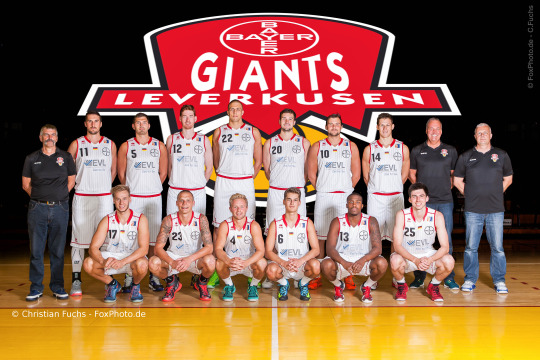
The German men’s national basketball team has won only one international gold medal at the 1993 Eurobasket, as well as one silver and two bronze medals. The women’s national team has won only one medal in international competitions, a bronze one at the 1997 Eurobasket.
Ice hockey
Germany has hosted the Ice Hockey World Championships seven times and the Ice Hockey European Championships four times. The men’s national team has never won an international competition, but has won seven silver medals, and is ranked seventh in the world.

Motorsports
Germany is one of the leading motorsports countries, having manufactured countless race winning cars. Notable Formula One champions include Michael Schumacher, Nico Rosberg, and Sebastian Vettel.
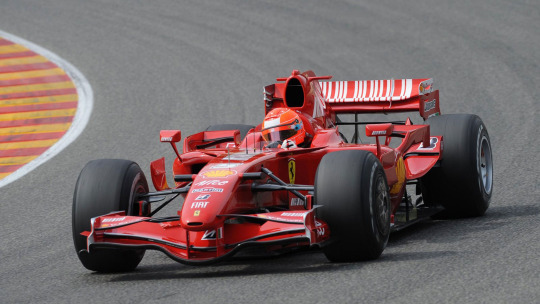
The country hosts the Deutsche Tourenwagen Masters, a sports car racing series based in Germany, with rounds in other European countries. Since 1995, only German car brands are allowed to compete.
Winter sports
Germany is also very successful in winter sports, being the only country in the world to have four bobsleigh, luge, and skeleton tracks. It has won more medals in bobsledding than any other country in the world, if those won by East and West Germany are included.

The country also dominates biathlon, luge, and skeleton thanks to athletes such as Sven Fischer and Uschi Disl in biathlon, Felix Loch and Natalie Geiseberger in luge, and Anja Huber and Kerstin Jürgens in skeleton.
Notable skiers include Tobias Angerer in cross-country skiing, Martin Schmitt in ski jumping, Eric Frenzel in Nordic combined, and Katja Seizinger in alpine skiing. Claudia Pechstein is renowned in speed skating and Katarina Witt in figure skating.

Tennis
The two most successful German tennis players of all time are Boris Becker and Steffi Graf. The former won six Grand Slam titles, and the latter won twenty-two, becoming the only tennis player to win all four Grand Slam titles and the Olympic gold medal in the same year.

Cycling
Jan Ullrich is one of the greatest riders, together with Tony Martin in individual time trial races and André Greipel among road sprinters. Germany has hosted the start of the Tour de France four times.

7 notes
·
View notes
Text
The year 2024 is expected to be one of the best years for sport fans due to the many events taking place. Whether you are a fan or simply want to know what is happening here is a little recap of the major sporting events taking place that you might find interesting. (I will be mostly talking about the international ones and the european ones as well as the ones i will be following closely)
2024 World Junior Ice Hockey Championships (which is ending on the 5th of January) 2023–24 Four Hills Tournament ( which is ending on the 6th of January) 2024 United Cup (which is ending on the 7th of January) 2023–24 Tour de Ski (which is ending on the 7th of January) 2024 Men's European Water Polo Championship (4-16 January) 2024 European Speed Skating Championships (5-7 January) 2024 Women's European Water Polo Championship (5-13 January) 2024 Dakar Rally (5-19 January) 2024 European Figure Skating Championships (8-14 January) 2024 European Men's Handball Championship (10-28 January) 2023 AFC Asian Cup (12 January - 10 February) 2023 Africa Cup of Nations (13 January - 11 February) 2024 Australian Open (15-28 January) 2024 Winter Youth Olympics (19 January – 2 February) World Junior Alpine Skiing Championships 2024 (30 January – 3 February) 2024 Four Continents Figure Skating Championships (30 January – 4 February) 2024 Six Nations Championship (2 February – 16 March) 2024 World Junior Figure Skating Championships (26 February – 3 March) 2024 Miami Open (17–31 March) 2024 World Figure Skating Championships (18–24 March) 2024 European Men's Artistic Gymnastics Championships (24–28 April) 2024 European Women's Artistic Gymnastics Championships (2-5 May) 2024 Giro d'Italia (UCI World Tour) (4–26 May) 2024 French Open (26 May −8 June)
UEFA Euro 2024 (14 June–14 July) 2024 Copa América (20 June–14 July) 2024 Tour de France (UCI World Tour) (29 June–21 July) 2024 Wimbledon Championships (1-14 July) 2024 Summer Olympics (26 July–11 August) 2024 US Open (26 August–8 September) 2024 FIFA Futsal World Cup (14 September–6 October) 2024 European Women's Handball Championship (28 November–15 December)
All the FIFA Cups held this year: 12 January—10 February Qatar 2023 AFC Asian Cup, in Qatar 13 January—11 February Ivory Coast 2023 AFCON, in Ivory Coast 14 June—14 July United States 2024 Copa América, in United States 31 August–22 September Colombia 2024 FIFA U-20 Women's World Cup, in Colombia 16 October–3 November Dominican Republic 2024 FIFA U-17 Women's World Cup, in Dominican Republic June South Korea 2024 Suwon JS Cup in Suwon, South Korea December 2024 Thailand 2024 King's Cup in Thailand December 2024 Kuwait 26th Arabian Gulf Cup in Kuwait
UEFA finals: 2024 UEFA Europa League final (22 May) 2024 UEFA Europa Conference League final (29 May) 2024 UEFA Champions League final (1 June)
Formula One (29 February - 8 December) and the support series F1 Academy (7 March - 8 December) MotoGP (8 March - 17 November) and the support series
What are you most excited for?
#sport#sports#football#motogp#formula 1#euro 2024#olympics#handball#tennis#road cycling#figure skating#rugby#2024
5 notes
·
View notes
Text
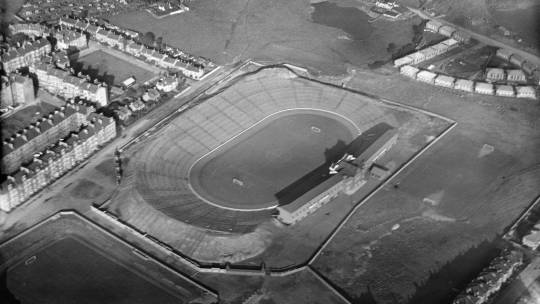


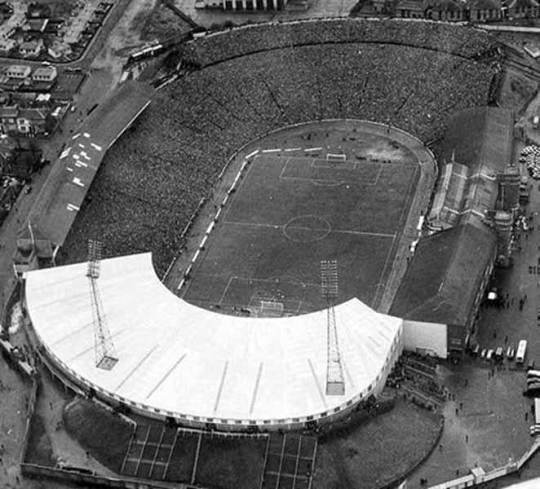

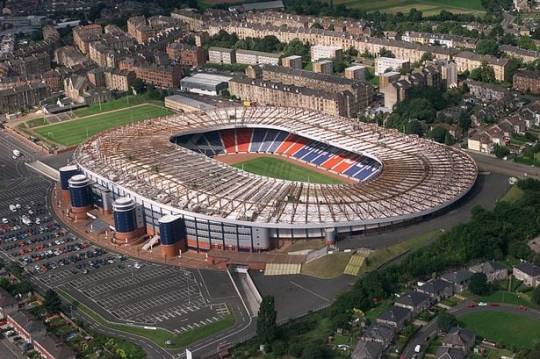

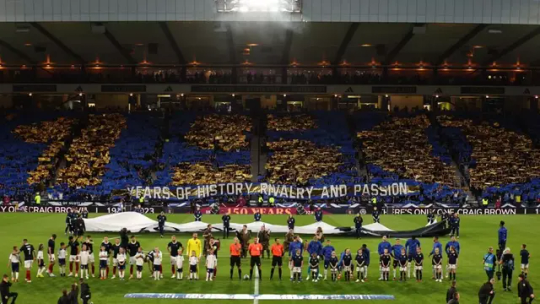
On October 31st 1903 Hampden Park stadium opened in Glasgow as the home of Queen’s Park Football Club.
Sources differ some say October 25th but SFA state 31st, I think the confusion is that there ws a previous stadium called Hampden, it is now occupied by railway lines and a lawn bowling club named Hampden Bowling Club. It opened on 25th October 1873 and closed 10 years later. It was the first enclosed stadium with turnstiles in the country
Hampden was the biggest stadium in the world, it would hold this record until 1950 when The Maracanã Stadium in Rio, it held and incredible 199,854 for the final.
Back to Hampden, it opened for a league game on this day in 1903, three years late it held it’s first international when Scotland played England in front of a crowd of 102,741 people, which established Hampden as the primary home of the Scotland team.
Attendances continued to increase during the remainder of the 1900s, as 121,452 saw the 1908 Scotland v England match. A new world record of 127,307 were in attendance to see Scotland play England in 1912.
World record crowds attended Scotland matches against England in 1931 and 1933 and it was 33 that saw the first team from mainland Europe, Austria visit the stadium. Further ground improvements increased the official capacity of the ground to 183,388 in 1937, but the SFA were only allowed to issue 150,000 tickets for games. The 1937 Scotland v England match had an official attendance of 149,415, but at least 20,000 more people entered the ground without tickets.
During WW2 a government official presented an order demanding that both the Hampden and Lesser Hampden pitches be ploughed and used to plant vegetables, but the Queen’s Park committee chose to ignore the order and the government did not pursue it.
Hampden hosted the 1960 European Cup Final; Real Madrid defeated 7–3 Eintracht Frankfurt with 130,000 people in attendance. By the time the next European cup final was held in 1976 between Bayern Munich of West Germany and Saint-Étienne of France the attendance had fallen to 54,670. The French complained about the goalposts stating that two of their efforts which hit the square crossbar and rebounded into play would have resulted in goals if it had been round!
Hampden was aging and the capacity was cut 81,000, redevelopment started in October 1981 and completed in 1986, reduced the capacity to 74,370 and cost £3 million. After the cancellation of the annual Scotland v England fixture in 1989, questions were raised as to whether Scottish football required a separate national stadium, other venues were mooted but the SFA and the stadium committee rejected these and after securing a grant of £3.5 million in 1992, work to begin on a £12 million project to convert Hampden into an all-seater stadium, Hampden was re-opened for a friendly match between Scotland and Netherlands on 23 March. The final stage of the renovation began in November 1997, costing £59 million, inevitably the price soared but Hampden was re-opened for the 1999 Scottish Cup Final. The ground now has a capacity of 51,866.
The stadium was again fit to host the top matches and Real Madrid were again victorious when Hampden Park hosted the 2002 UEFA Champions League Final, defeating Bayer Leverkusen, with Zinedine Zidane scoring the winning goal with a left-foot volley.
In 2012, a Scotland women’s national football team game was played at Hampden for the first time, when it hosted the first leg of a European Championship qualifying playoff against Spain and Hampden was temporarily converted into an athletics stadium for the 2014 Commonwealth Games.
To celebrate the 60th anniversary of the European Championship in 2020 the National stadium has been chosen by Uefa as on of 13 venues for the competition and I am sure the people of Scotland will welcome whoever is chosen to play in Glasgow.
With the advent of big stadium concerts Hampden has been used to host a wealth of worldwide acts Genesis and Paul Young performed in the first concert at Hampden, in 1987. The Rolling Stones played there in 1990, during their Urban Jungle Tour. Since the redevelopment of Hampden was completed in 1999, many acts have performed there, including The Rolling Stones, Rod Stewart, Tina Turner, Bon Jovi, Eagles, U2,Oasis, George Michael, the Red Hot Chili Peppers, Neil Diamond, Take That, AC/DC, Bruce Springsteen, Coldplay, Pink, Paul McCartney, Rihanna, and Beyoncé.
In 2018 the SFA )Scottish Football Association)agreed a £5m fee for the national stadium with Queen's Park, just this year it was used to host games in the delayed Euro 2020 matches. The stadium recently played host to the 15oth anniversary Scotland v England match, the lesssaid about that game the better! ;)
The pictures show the changes to the stadium over the past 118 years.
16 notes
·
View notes